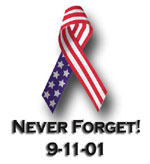Anything But Quiet on the Set: The Way It Was, 11 September

FEATURED BROADCAST
CANDY MATSON, YUKON 2-8209:
THE MOVIE COMPANY
(NBC, 1951)
CANDY MATSON, YUKON 2-8209:
THE MOVIE COMPANY
(NBC, 1951)
In a mostly effective episode, compromised briefly by a momentary lapse into melodrama toward the finish, the arguable best of old-time radio's very few female private investigators learns the hard way what happens when there's anything but quiet on the set.
There's a full cast and crew shooting on location a block or so from Candy's (Natalie Masters) San Francisco home, bemusing Mallard (Henry Leff) and amusing her when they visit the set, in part out of general curiosity and in part out of Candy's pleasure in catching up to veteran actor Buck Arnold (Curt Martell), whom she dated once when trying in earlier times to make it in Hollywood herself. But when Arnold escorts her on a set tour, it turns up three dummies suspended from a tree for a lynching scene . . . one of which proves no dummy but an unexpected corpse, thought erroneously to be another local film extra.
That launches a probe exposing a series of set accidents; a very dead director (Hal Verdick), whom Candy interviews early in the probe; a very nervous and temperamental actress (Mary Milford), who accuses Candy of trying to steal her role when she happens upon the director's interview by Candy; and, an equally edgy assistant director (John Gober), once Dana's husband, who carries both a brighter torch for his former wife than he likes to let on and a deeper tie to the dead dummy than anyone suspects at first.
Announcer: Dudley Manlove. Music: Eloise Morgan. Sound: Bill Brownell. Writer/director: Monte Masters.
CHANNEL SURFING . . .
LUM & ABNER: THE STORY OF ABNER'S RESCUE KEEPS GETTING BIGGER (NBC BLUE, 1935)---Lum's (Chester Lauck) original ruse was nothing compared to Abner's (Norris Goff) turnaround---he lets it be known that Lum was his rescuer, a whopper that threatens to get even bigger than the original kidnap ruse when Lum tries to downplay the rescue on the phone at Cedric's (also Lauck) place. Writers: Chester Lauck, Norris Goff.
OUR MISS BROOKS: THE SCHOOL BOARD (CBS, 1949)---You'd think an out-of-town picnic with Boynton (Jeff Chandler), Walter (Richard Crenna), and Harriet (Gloria McMillan) wouldn't be too much for Connie (Eve Arden) to ask---unless you're Conklin (Gale Gordon), who's re-opening school early, demanding a full faculty and student presence, to impress a visiting state school board official . . . and unaware that he was the victim of one of Walter's practical jokes. Mrs. Davis: Jane Morgan. Stretch: Leonard Smith. Announcer: Bob LaMond. Music: Wilbur Hatch. Writer/director: Al Lewis.
MEET MILLIE: THE PARTY INVITATION (CBS, 1951)---Boone & Sons's most prominent customer (Barton Yarborough) is opening a New York nightclub and invites the entire firm to the club's opening, prompting Millie (Audrey Totter)---of whom said customer is particularly fond---to a shopping spree during which Mama (Bea Benaderet) gets invited to the party as well, and seems to press Millie to think about marrying him and not the apparently reluctant Boone, Jr. (Rye Billsbury). Boone, Sr.: Earle Ross. Morton: Bill Tracy. Operator: Jean Tatum. Announcer: Bob LaMond. Music: Irving Miller. Writers: Frank Galen, Bill Manhoff, Roland McLane.
IN MEMORIAM
Today's offering is dedicated to the memory of those who were murdered in an act of war against the United States of America on 9/11. To the hope that the pursuit of their murderers and the hosts thereof, should never end without justice. And, that it should never destroy our patrimony or, above all, become or remain an excuse by any American leadership, or any American citizen, to compromise or usurp our American birthright.
That those who were murdered, and those who have died on their behalf since, shall not have died in vain, let us never forget what one of old-time radio's most incandescent voices counseled, once upon a time, in a different context but with the appropriate and imperative thrust.
We can deny our heritage and our history, but we cannot escape responsibility for the result. As a nation we have come into our full inheritance at a tender age. We proclaim ourselves, as indeed we are, the defenders of freedom---what's left of it in the world---but we cannot defend freedom abroad by deserting it at home.EDWARD R. MURROW













0 Comments:
Post a Comment
Subscribe to Post Comments [Atom]
<< Home